Extract from The Guardian
Contrary to the ideal of a government of and by the people, new
research shows Americans are almost always governed by the very
privileged
This
year at least two races for seats in the US House of Representatives
will feature high-profile candidates with significant experience in
working-class jobs – the manual labor, service industry and clerical
jobs that make up over half of the American labor force. In Wisconsin’s
first congressional district, the Democratic nominee is a delivery-driver-turned-ironworker named Randy Bryce,
nicknamed “Ironstache”, who takes credit for “scaring off” Paul Ryan.
In New York’s 14th congressional district, a former bartender and
waitress named Alexandria Ocasio-Cortez recently made headlines for her stunning primary-election upset over incumbent Democrat Joe Crowley.
Candidates like Bryce and Ocasio-Cortez – politicians with significant experience in the kinds of jobs most Americans punch in for every day – are genuine anomalies in 2018, and in US politics more generally.
I have been researching this issue for the past 10 years, and the results, published in my new book, The Cash Ceiling: Why Only the Rich Run for Office – and What We Can Do About It, are clear. Contrary to the cherished ideal of a government of and by the people, Americans are almost always governed by the very privileged.
The president is the billionaire head of a global business empire. His cabinet is mostly millionaires. Most members of Congress are millionaires. Most supreme court justices are millionaires. Millionaires make up less than 3% of the general public, but have unified majority control of all three branches of the federal government. Working-class Americans, on the other hand, make up about half of the country. But they have never held more than 2% of the seats in any Congress since the nation was founded.
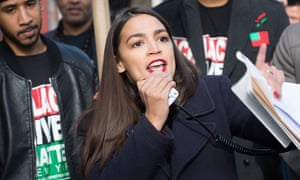
Candidates like Bryce and Ocasio-Cortez – politicians with significant experience in the kinds of jobs most Americans punch in for every day – are genuine anomalies in 2018, and in US politics more generally.
I have been researching this issue for the past 10 years, and the results, published in my new book, The Cash Ceiling: Why Only the Rich Run for Office – and What We Can Do About It, are clear. Contrary to the cherished ideal of a government of and by the people, Americans are almost always governed by the very privileged.
The president is the billionaire head of a global business empire. His cabinet is mostly millionaires. Most members of Congress are millionaires. Most supreme court justices are millionaires. Millionaires make up less than 3% of the general public, but have unified majority control of all three branches of the federal government. Working-class Americans, on the other hand, make up about half of the country. But they have never held more than 2% of the seats in any Congress since the nation was founded.

First, the bad news: there are no easy answers here.
It would be convenient, for instance, if we could sidestep this question entirely by saying that the social class backgrounds of politicians don’t really matter, that politicians always do their best to work for the common good regardless of where they come from (This was Alexander Hamilton’s argument in the Federalist #35).
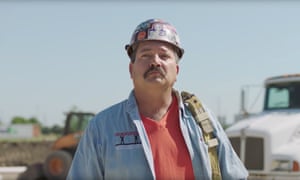
Unfortunately, politics doesn’t usually work like that. Just as working-class people in the general public tend to be more pro-worker (and business owners tend to be more pro-business, farmers tend to be more pro-farm, etc), politicians from different social classes tend to bring different perspectives with them to public office, especially when it comes to economic issues. In confidential surveys of state legislators, leaders from the working class in both parties are 20 to 50 percentage points more likely to support policies such as social welfare programs, regulation of the private sector, government-backed healthcare and efforts to reduce economic inequality. In scorecards that rank how members of Congress vote on economic legislation, those from the working class consistently earn significantly higher marks from pro-worker groups like the AFL-CIO and lower marks from business groups like the Chamber of Commerce.
These differences, coupled with the virtual absence of working-class people in our political institutions, ultimately have enormous consequences for public policy. States with fewer legislators from the working class spend billions less on social welfare each year, offer less generous unemployment benefits and tax corporations at lower rates. Towns with fewer working-class people on their city councils devote smaller shares of their budgets to social safety net programs; an analysis I conducted in 2013 suggested that cities nationwide would spend approximately $22.5bn more on social assistance programs each year if their councils were made up of the same mix of classes as the people they represent. Unfortunately, we can’t write off white-collar government as politically inconsequential. As the old saying goes, when the working class isn’t at the table, it’s often on the menu.
We also can’t dismiss government by the privileged as an inevitable byproduct of some deficiency on the part of working-class people themselves. It sounds odd to have to state this, but to the contrary, workers and professionals alike tend to have the qualities voters want – traits like honesty, compassion and a strong work ethic – at about the same rates. And when working-class Americans hold office, they tend to do about as well as professionals on objective measures of government performance. Between 1996 and 2001, for instance, towns governed by majority-working-class city councils were indistinguishable from other cities in terms of their rates of population growth, revenue growth, school spending, and debt. The idea that workers don’t hold office because they lack the necessary skills simply doesn’t add up. If just 1% of working-class Americans had what it takes to govern, that would be more than enough potential politicians to staff every office in the United States.
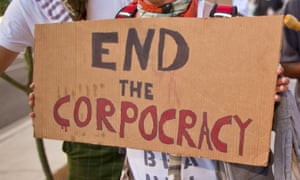
Last, we also can’t blame government by the privileged on some preference for affluent leaders on the part of American voters. When working-class candidates run, voters tend to like them just fine. Between 1945 and 2008, members of Congress from the working class earned about as many votes as those from white-collar careers. In surveys embedded with randomized control trials, voters are just as likely to say that they would vote for a working-class candidate as they are to pick an otherwise-identical white-collar candidate. When voters are asked directly why they think so few working-class people hold office, “workers are less qualified” is the least popular answer; around 75% of people surveyed in 2014 said that working-class candidates tended to be at least as qualified as white-collar professionals. When workers run, they don’t face a class-biased electorate.
In my book, I analyze every available source of systematic data that can shed light on why so few people from working-class backgrounds run for political office, including several original surveys of candidates, party officials and ordinary citizens. Across this wide range of datasets, there appear to be two main obstacles facing workers.
First, workers seldom run for public office in the US because of the fundamental personal burdens associated with campaigning – doing so always takes a great deal of time and energy, and working-class Americans are far less likely to have the time and energy to spare. When I surveyed seemingly qualified working-class and white-collar citizens, the biggest gap in their reported concerns about running wasn’t a fear about being able to raise enough money, or a difference in raw political ambition, it was a more fundamental concern about losing out on income and work in order to campaign. As one worker (who herself had run for city council and won) put it, “When you are working 40 hours a week and working 40 hours on the campaign, it’s too much.”
Second, and partly as a result, the party and interest group leaders who help people launch political careers often pass over workers in favor of more familiar white-collar candidates. In a 2013 survey of the leaders of county-level political parties, most were quite open about their preference for white-collar candidates. More than 30% said workers are worse at campaigning, more than half said that workers were harder to recruit and two-thirds of local party leaders worried that workers would make bad fundraisers. One survey item even asked party leaders to compare two hypothetical candidates; when evaluating equally qualified workers and professionals, party leaders were consistently more likely to back the white-collar candidate. Qualified working-class Americans almost never appear on your ballot in part because powerful people are less likely to encourage or support them.
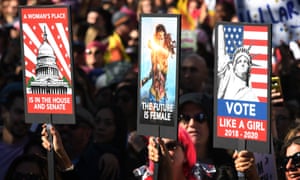
White-collar government isn’t caused by voters, or some deficiency on the part of workers or even the soaring costs associated with political campaigns. It is caused by the simple reality that campaigning requires taking time off work and getting help from political elites, and working-class Americans often can’t do either.
From a reform standpoint, that is actually good news. Making public office more accessible to a broad cross-section of the economy won’t require significantly changing our laws or electoral institutions. People who work in and around government just need to devote more attention and resources to qualified working-class candidates.
Political parties and activist organizations already know how to do exactly that. Just a generation ago, women made up around 2% of Congress – today that number is closer to 20%. What changed? Party leaders and interest groups began devoting time and resources to female candidates, working to identify talented women, and helping them overcome the obstacles that prevented them from running.
When pro-worker organizations have attempted similar interventions targeting working-class candidates, the results have been extremely promising. In New Jersey, for instance, the state affiliate of the AFL-CIO runs a well-established “labor candidates school” that has trained working-class candidates for more than 700 state and local elections. Graduates of this pioneering program have won 75% of the elections in which they have run and have gone on to have long and effective careers in public office. Organizations that understand the challenges facing workers and that invest in overcoming them seem to have found the key to helping the working class break through America’s cash ceiling.
A half century ago, women were anomalies in congressional elections, and in American political institutions more generally. Today they aren’t. Ironworkers and restaurant servers don’t have to be either.
- Nicholas Carnes is the Creed C Black associate professor of public policy and political science at Duke University’s Sanford school of public policy and the author of The Cash Ceiling: Why Only the Rich Run for Office – and What We Can Do About It (Princeton University Press, 2018)

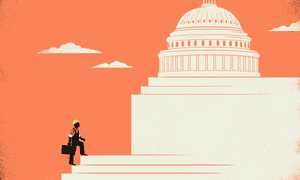
No comments:
Post a Comment